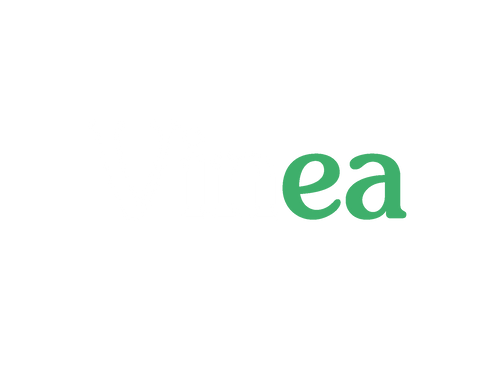PASCAL DOQUET
Facts and wines

Buy their wines here
Products
- Champagne Arpège Extra Brut 100% Chardonnay
- Champagne Horizon Brut 100% Chardonnay
- Champagne Horizon Brut MG 100% Chardonnay
- Champagne GC Diapason Extra Brut 100% Chardonnay
- Champagne Premier Cru Rosé Anthocyanes Extra Brut 48% Pinot Noir 52% Chardonnay
- Champagne Premier Cru Vertus Brut 2006 100% Chardonnay
- Champagne Premier Cru Vertus Brut 2008 100% Chardonnay
- Champagne GC Le Mesnil 2006 100% Chardonnay
- Champagne GC Le Mesnil 2008 100% Chardonnay
- Champagne GC Le Mesnil Vertical Case with 1995, 1998, 1999, 2002, 2004, 2005
CHARDONNAY SPECIALIST
Vertus and Bergères-les-Vertus as well as Le Mesnil-sur-Oger are part of the Côte des Blancs area and are naturally, as the name indicates, planted with Chardonnay. However, Pascal Doquet grows a bit of Pinot Noir in Vertus – where Pinot has historically been quite widespread – which is primarily used for the production of the house's excellent rosé. The fields in the Perthois area also consist of Chardonnay grapes. So apart from rare exceptions in certain vintages where some champagnes may contain a little Pinot Noir, it is Blanc de Blancs champagnes [Champagne made exclusively from the Chardonnay grape] that you get at Pascal Doquet.
EXPERIENCE AND GREAT AMBITIONS
Although Domaine Pascal Doquet was only established in 2004, the owner is an experienced man. Pascal has been growing grapes and producing wines since 1982. The place was the same: same fields, same cellar, but the name was Doquet-Jeanmaire and the domaine was owned and managed by Pascal's father until 1995, when Pascal took over. However, he had his two sisters as co-owners of the family domain. Since their respective aspirations were not quite the same, it was decided in 2003 that the ambitious winegrower should buy himself free from his sisters and continue solo, so that he could have a free hand to produce what he dreamed of: great terroir wines in Champagne.
THE REVOLUTION THAT CAME FROM BOURGUNDY
Back then, more than a decade ago, there were not many producers in Champagne who had the highest quality as their goal and the terroir as their guiding star. The region was – and still is today – dominated by the big brands that everyone knows and next to these, there is a sea of small houses and domains as well as some cooperatives. The vast majority of production takes place according to industrial methods, which are miles away from the precise craftsmanship that can be experienced at, for example, the best domains in Burgundy.
THE SEARCH FOR THE AUTHENTIC AND THE NATURAL
During this time was Pascal Doquet, who since his young years had read Rudolf Steiner and the principles of biodynamics and had a strong environmental awareness in the search for a more sustainable way of producing wines. And a way to get a clearer and clearer expression of terroir in the family's wines. Pascal was inspired by the "new" philosophy of returning to good classic craftsmanship and he felt that the potential of his domain's magnificent Grand Cru and Premier Cru terroir was underutilized.
EXTREMELY DEDICATED WORK IN THE FIELDS
The quality of Pascal Doquet's wines does not come out of nowhere. It comes primarily from some really good fields and really good vines, located in the best terroirs in the southern part of the Côte des Blancs and the Perthois area. In addition, it comes from Pascal's perfectionist work in the fields. They are cared for with great love, as if it were a garden. All the operations (such as pruning, ploughing, binding, defoliation, etc.) are carried out with the greatest care and professional pride, almost always with Pascal at the forefront. The method is ecology, and great emphasis is placed on disease prevention via the establishment of a strong ecosystem around the fields. It is absolutely stunning to see Pascal Doquet's fields. Where the norm in Champagne is otherwise bare soil, sprayed completely free of plants other than vines, Domaine Doquet's fields are covered with grass, wild grain, flowers and the exquisite "garlic of the vines". You will also find a sea of insects, birds and other animals, such as e.g. hares enjoying these green oases.
Pascal's vines produce only a limited yield – typically 30% lower than the regulations allow – but in return they produce a juice that is full of flavor and loaded with the minerals of the subsoil. The grapes are harvested by hand at full maturity. Precisely this is not a matter of course in Champagne. Although wine from unripe grapes does not sound so nice, unfortunately it is still often the norm for many producers in this northern region. The full maturity naturally produces larger wines with more flavor dimensions, but it also typically occurs between the end of September and the beginning of October, when there is a high risk of rain and rot. This can lead to a loss of harvest, as the rotten grapes have to be sorted out. This risk is accepted at Domaine Pascal Doquet. If you want to make great wines, you have to start by harvesting ripe grapes, even if this means reduced quantities.
PRECISION IN THE CELLAR
Pascal Doquet is actually a bit of a hippie, but a structured one. And in the cellar, his position is that the perfect quality of the grapes must be matched by the same quality and precision in the vinification. The aim is to optimally express the qualities of the grapes and the character of the terroir.
THE CHARACTER OF THE WINES
In general, you can say that Pascal Doquet's wines have a clear Chardonnay profile: light, clean and elegant. Next, they taste of where they come from. Soil and exposure differences between the various terroirs undeniably leave their mark on Doquet's champagnes.
